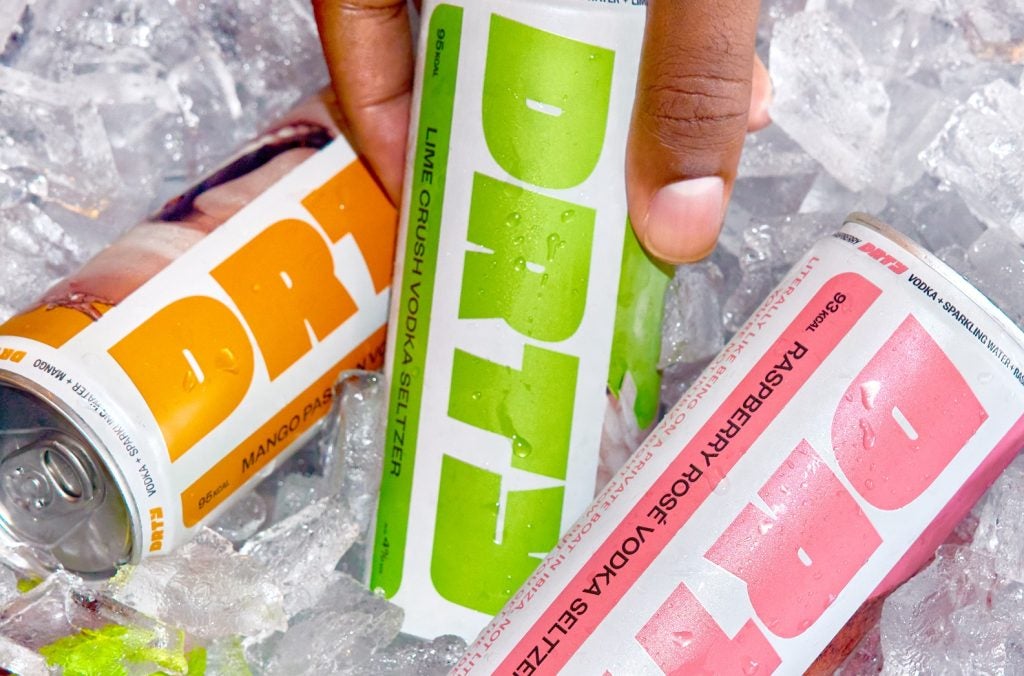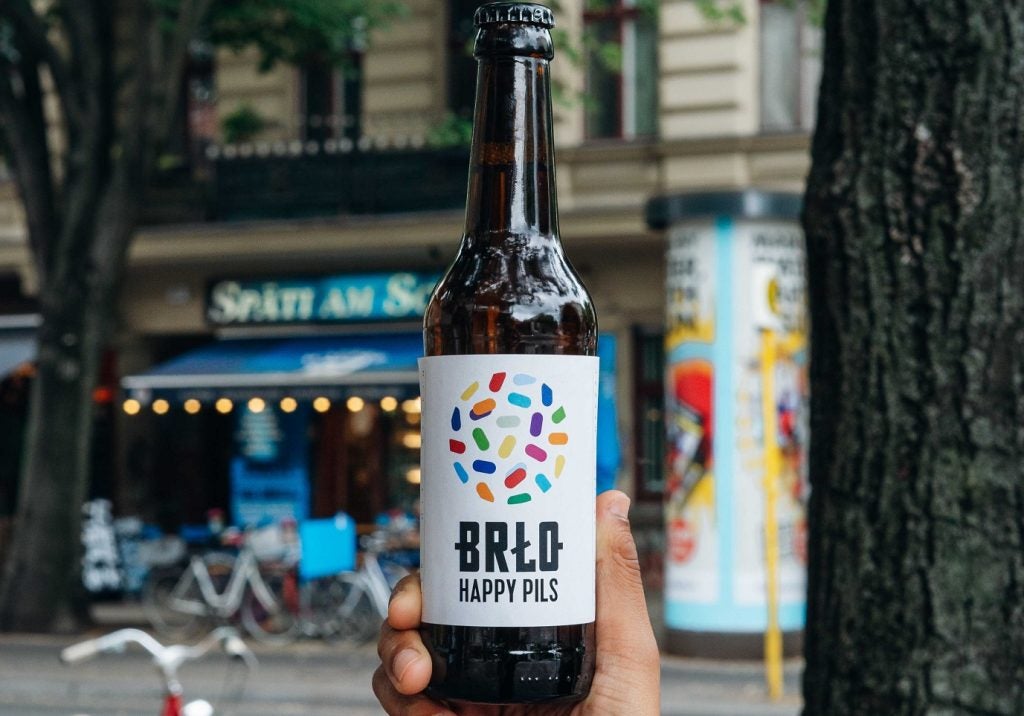Drty Drinks, the UK business best known for its namesake hard seltzer, wants to distribute more brands domestically.
The company, set up in 2019, handles French cider brand Galipette in the UK and has started selling for German craft beer Brlo.
“We don’t want ten brands but we want to take the first steps over the next 18 months to build a bit more of a deliberate portfolio – probably three, four, five brands max,” Oli Clements, one of Drty Drinks’ co-founders, told Just Drinks.
Drty Drinks took on Galipette around a year after launching its own business with its hard seltzer. Galipette, Clements said, had since grown from selling “about 20,000 litres to just over 200,000 litres” in the UK.
The former Diageo executive said the company would take on overseas brands looking to enter the UK and homegrown products looking for new distribution. He is interested in working with beer, cider, RTD and possibly soft drink brands.
“The synergies are better. With the buying contacts you have, when you’re having a conversation in cider, it’s easier to have a conversation about craft beer than it is to suddenly talk about Tequila or gin,” Clements explained. “I don’t think we’re going to do much in spirits. There’s a lot of good distribution options out there, we feel it’s quite a different kind of category sell and the operational model’s different, there’s higher duty on spirit.”
The company is initially targeting Brlo – which has been selling in the UK through the Beer 52 website – at specialist craft beer wholesalers and retailers.
“From a country that is an authority on beer, Brlo are doing something quite unique,” Clements said. “The German beer style is very traditional, lots of helles, some pilsner and, if you look at the brand aesthetics – 500ml bottles, traditionally German – there’s a look. What Brlo has done is start to challenge that a little bit. Take their pilsner – Happy Pils – it’s a very hoppy pilsner. It’s not a traditional German pilsner.”
When Clements and co-founder Matija Pisk set up Drty Drinks, they had not envisioned the company would become a distributor, he said. However, the growth of Galipette and trading conditions had made building a distribution stable attractive.
“We had a two-brand business [with Galipette], so you’ve got to lean into that eventually. Operationally, as well, the economy has changed,” Clements said. “It’s harder to raise money. Being more sustainable as a business is more important.
“Having a distribution business helps you cover costs, helps you invest behind your brand, gives you economies of scale and that’s been a big factor.”
Drty’s optimism about hard seltzer
Drty Drinks has recently rebranded its eponymous hard seltzer with updated packaging. The company sells its vodka-based seltzers through UK retailers including Waitrose and Ocado.
The hard seltzer market in the UK has yet to reach the size some of proponents had hoped. However, Clements said it was too simplistic to suggest Drty Drinks had decided to expand its distribution business only because the category had not grown as some might have expected.
“There’s some truth in it but it’s definitely not a negative. We’ve got to keep growing as a business. One challenge we have found is we haven’t been able to unlock any more major grocery customers on Drty. We haven’t been able to grow distribution as quickly as we’d like, so you’ve got to find other ways to keep growing,” he said.
“We’re definitely not giving up on Drty. We wouldn’t have rebranded and invested all that money if we didn’t believe in it but you’ve got to adapt to market conditions and keep finding ways to grow.”
Clements added: “The category’s had its challenges but on Drty we’ve been able to keep growing quite consistently. We’re doing probably over £1.5m ($1.9m) in retail sales on it, we’ve got good distribution. There’s a headline isn’t there of ‘hard seltzer hasn’t delivered’ but there’s a lot of signs for us that people are buying into the category.
“This year probably looks a bit ugly on the [category] numbers because quite a lot of brands have come out distribution-wise but, look at White Claw, they’re doing a good job. You’ll see the [category] stabilise and continue to grow.”

The rebranding of Drty hard seltzers builds on the business’ efforts to “reposition” the drinks “more towards what we call ready to drink”, Clements said. New products are in the pipeline, possibly including moves to launch products using different spirits.
The company continues to be in talks with major UK retailers on new listings and is “hopeful that we’ll be able to get something over the line”, Clements says, but is also looking to build its distribution in other channels. “We definitely see an opportunity to grow our presence in the on-trade and festivals. There’s a lot of good conversations we’re having there, not just festivals but on-trade venues and the higher-pace, nightlife economy,” he said.
In March, Drty Drinks closed a crowdfunding round that raised over £650,000, taking its total funding to date to around £1.5m. Investors in the business, which Clements says will be “pretty close to break-even” by the end of the financial year ending September 2024, include Velocity Capital.
The company’s hard seltzers are present in a handful of markets outside the UK, including Finland and France. Clements said: “We want to develop our export strategy to be a bit more deliberate and concerted. Pick a market that might take us a bit longer to crack but we know it’s, long-term, the right decision to work there.”









